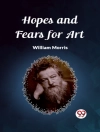Essays in this volume seek to clarify the meaning of tragedy and the tragic in its many German contexts, art forms, and disciplines, from literature and philosophy to music, painting, and history.
The many catastrophes of German history have often been described as tragic. Consequently, German literature, music, philosophy, painting, and even architecture are rich in tragic connotations. Yet exactly what ‘tragedy’ and ‘thetragic’ may mean requires clarification. The poet creates a certain artful shape and trajectory for raw experience by ‘putting it into words’; but does putting such experience into words (or paintings or music or any other form) betray suffering by turning it into mere art? Or is it art that first turns mere suffering into tragic experience by revealing and clarifying its deepest dimension? What are we talking about, exactly, when we talk about tragic experience and tragic art, especially in an age in which, according to Hannah Arendt, evil has become banal? Does banality muffle or even annul the tragic? Does tragedy take suffering and transform it into beauty, as Schiller thought?Is it in the interest of truth for suffering to be ‘beautiful’? Is it possible that poetry, music, and art are important because they in fact create the meaning of suffering? Or is suffering only suffering and not accessible to meaning, tragic or otherwise? This book comprises essays that seek to clarify the meaning of tragedy and the tragic in its many German contexts, art forms, and disciplines, from literature and philosophy to music, painting, and history.
Contributors: Jeffrey A. Bernstein, Stephen D. Dowden, Wolfram Ette, Jennifer Anna Gosetti-Ferencei, Barbara Hahn, Karsten Harries, Felicitas Hoppe, Joseph P. Lawrence, James Mc Farland, Karen Painter, Bruno Pieger, Robert Pirro, Thomas P. Quinn, Mark W. Roche, Helmut Walser Smith.
Stephen D. Dowden is Professor of German language and literature at Brandeis University. Thomas P. Quinn is an independent scholar.
Tabla de materias
Introduction: The Pursuit of Unhappiness
The Confinement of Tragedy: Between
Urfaust and Woyzeck
Goethe’s
Faust as the Tragedy of Modernity
Before or Beyond the Pleasure Principle: Goethe’s
Wahlverwandtschaften and the Tragedy of Entsagung
Hölderlin und das Tragische
Nietzsche, Büchner, and the Blues
Freud und die Tragödie
The Death of Tragedy: Walter Benjamin’s Interruption of Nietzsche’s Theory of Tragedy
Rosenzweig’s Tragedy and the Spectacles of Strauss: The Question of German-Jewish History
Requiem for the Reich: Tragic Programming after the Fall of Stalingrad
The Strange Absence of Tragedy in Heidegger’s Thought
The Tragic Dimension in Postwar German Painting
Vestiges of the Tragic
Atrocity and Agency: W. G. Sebald’s Traumatic Memory in the Light of Hannah Arendt’s Politics of Tragedy
‘Stark and Sometimes Sublime’: Hannah Arendt’s Reflections on Tragedy
The German Tragic: Pied Pipers, Heroes, and Saints
Afterword: Searching for a Standpoint of Redemption
Notes on the Contributors
Index
Sobre el autor
STEPHEN D. DOWDEN is Professor of Germanic Languages and Chair of the European Cultural Studies Program at Brandeis University.












